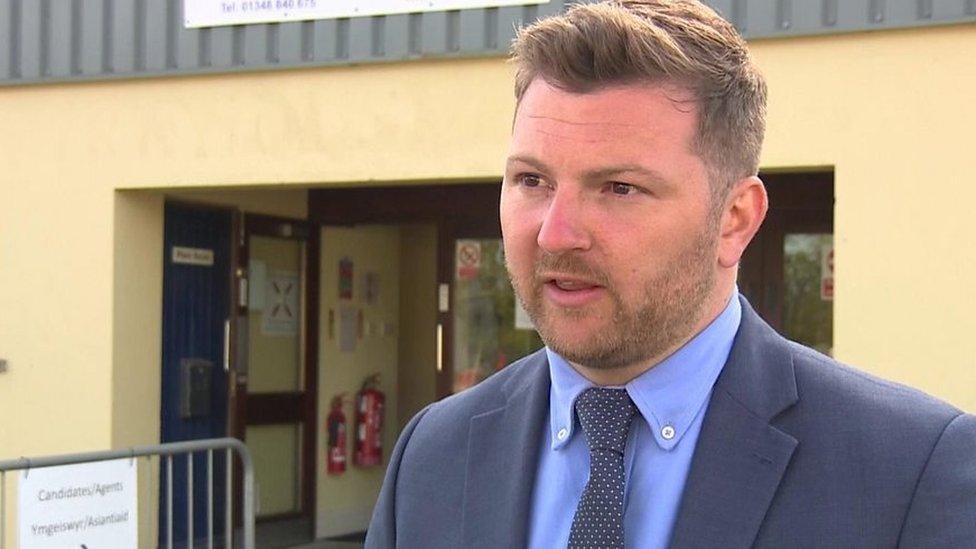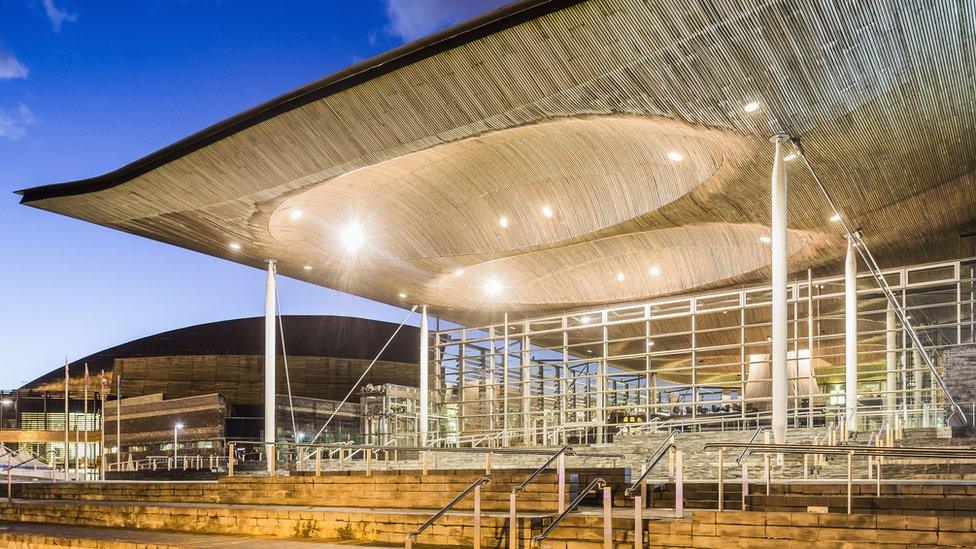Conservative backs Senedd expansion, against party policy
- Published

Samuel Kurtz called the way powers are devolved in the UK "a mish mash"
A Conservative Senedd member has called for a bigger Senedd, despite his party's opposition to it.
Samuel Kurtz said he would like to see 90 members instead of the current 60, but it should not happen during the cost of living crisis.
He also said the way the UK has been governed since devolution needs to be re-examined because "it just doesn't feel like it works properly".
Welsh Tories officially oppose Welsh ministers' Senedd expansion plans.
But Mr Kurtz said: "It's going to happen.
"I'd like it to happen, but under the umbrella of what's happening with costs at the moment I don't think the timing is just there."
He was appearing on a livestream of the BBC Wales podcast, Walescast, a few hours after people were asked to share their views on Wales' future with a commission examining the nation's relationship with the rest of the UK.
The cross-party body, set up by Welsh ministers, says it wants to involve citizens in a "national conversation" on how their country is run.
On the podcast, Mr Kurtz said: "I agree we really need to have a look at the way the United Kingdom is set up.
"It's interesting how some of the former Commonwealth countries have been left in a federal state and we've not really looked at that here in the United Kingdom."
He added: "It just doesn't feel like it works properly."

Backers of a bigger Senedd say the current institution is too small to properly handle its powers
The current settlement - with different powers devolved to Wales, Scotland and Northern Ireland - was "a mish mash", Mr Kurtz said.
Relationships between governments in Wales and Westminster rely too heavily on the personalities involved, "rather than a defined structure of how this works", he added.
Mr Kurtz, the Carmarthen West and South Pembrokeshire MS, said some people called him "a wet Tory. A realist I like to call myself."
Earlier on Thursday, Co-chairwoman of the Independent Commission on the Constitutional Future of Wales Prof Laura McAllister said the body's first step was to to "really engage with the public in Wales".
The commission is looking at all Wales' options, including independence.
It will consider how the current system of powers resting in Cardiff and London could change.
Prof McAllister told BBC Wales that because it was considering all the possibilities, within and potentially outside the UK, "we've got a big task ahead of us for sure".
"But our first step in that is to really engage with the public in Wales, which we're doing today," she said, "which is effectively launching a national conversation around Wales' political future."
"We really want it to be about the views of the people of Wales and to hear their voices on what they feel should happen in Wales."
'Some legitimacy, some credibility'
Co-chairman, ex-Archbishop of Canterbury Rowan Williams, said they wanted "the method of the commission to be as important as its goals, in a way".
"We want the way in which we consult to be a contribution to the ongoing political life of Wales," he said.
"We want to see methods of consultation and grassroots engagement really encouraged and reinforced by the way we do our job, not just the actual ideas.
"We're talking about the way we try to engage people so that what we come up with will have some legitimacy, some credibility."
Anyone wanting to express their views on Wales' future can do do so using the commission's webpage, external, by email or mail.

HOW COVID MADE THE SENEDD MATTER: Welsh politics and politicians became interesting
LESSONS FROM LOCKDOWN: How has the experience of lockdown changed us?
